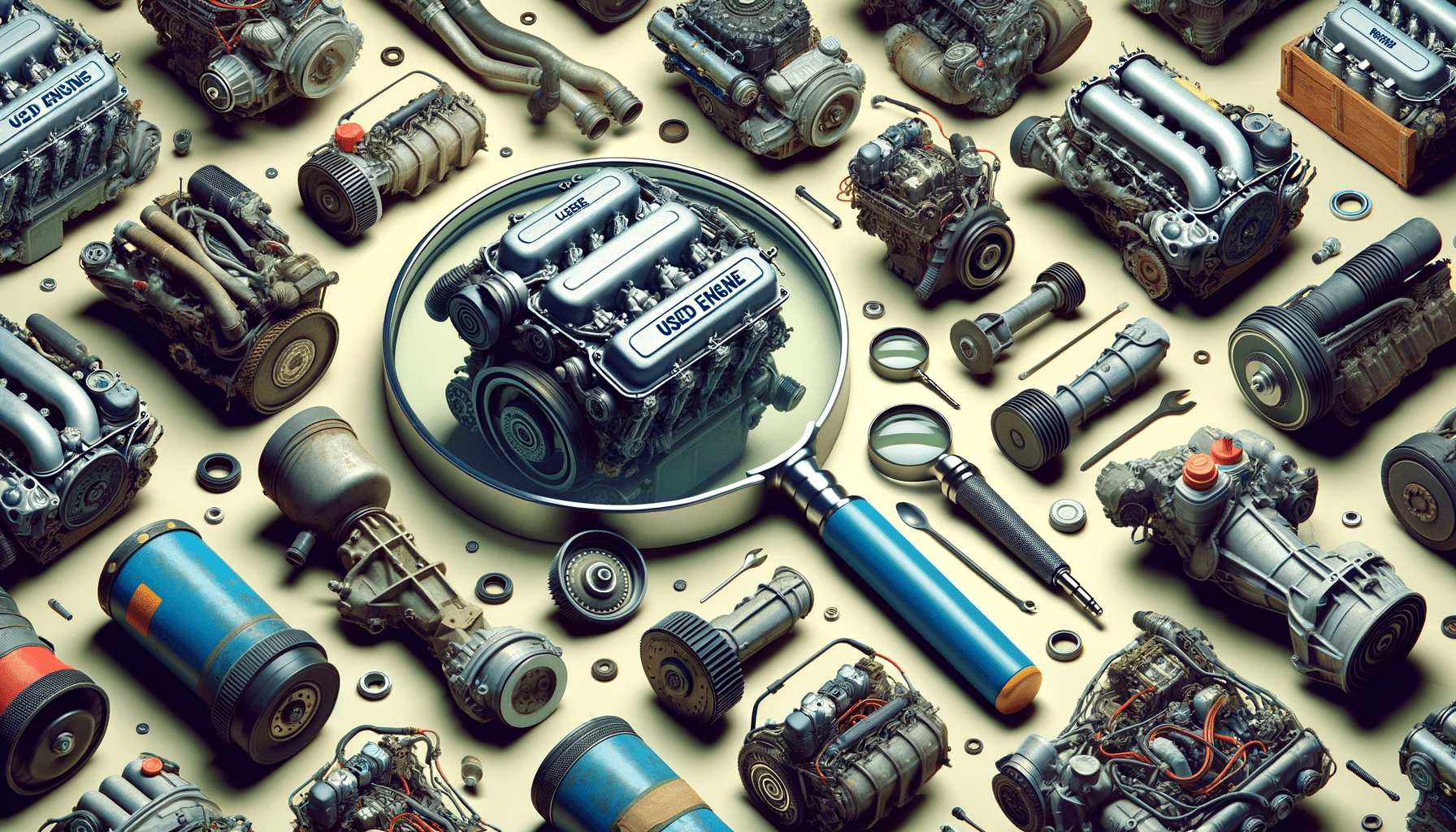Introduction to Used Engines
In the world of automotive repairs and upgrades, purchasing a used engine can be a cost-effective solution. Whether you’re restoring a classic car or simply need a replacement for a malfunctioning engine, used engines can offer significant savings. However, the process of selecting the right used engine requires careful consideration and understanding of various factors. This article aims to guide you through the essentials of purchasing used engines, ensuring you make informed decisions.
Assessing Engine Condition
The first step in purchasing a used engine is to assess its condition. This involves a thorough inspection to determine the engine’s health and longevity. Look for signs of wear and tear, such as oil leaks, rust, or unusual noises. Additionally, consider the mileage of the engine; lower mileage often indicates less wear. A compression test can provide insights into the engine’s internal condition, revealing potential issues that may not be visible externally.
When inspecting the engine, pay attention to the following:
- Oil Quality: Check the oil level and quality. Fresh, clean oil is a good sign, while dirty or low oil levels might indicate neglect.
- Belts and Hoses: Ensure that belts and hoses are not cracked or worn.
- Gaskets and Seals: Look for leaks around gaskets and seals, as these can lead to more significant problems if not addressed.
Understanding Technical Specifications
Matching the technical specifications of the used engine with your vehicle’s requirements is crucial. Ensure that the engine’s make, model, and year are compatible with your vehicle. Additionally, consider the engine’s power output and fuel type. An engine that does not match your vehicle’s needs can lead to performance issues and additional costs.
Key specifications to verify include:
- Engine Type: Confirm whether the engine is gasoline, diesel, or another type.
- Displacement: Ensure the engine’s displacement aligns with your vehicle’s requirements.
- Transmission Compatibility: Check if the engine is compatible with your vehicle’s transmission system.
Evaluating Maintenance History
The maintenance history of a used engine can provide valuable insights into its reliability and potential future performance. Request maintenance records from the seller to understand how well the engine has been cared for. Regular oil changes, timing belt replacements, and other routine maintenance activities are indicators of a well-maintained engine.
Consider the following when evaluating maintenance history:
- Service Records: Look for documentation of regular servicing and repairs.
- Previous Ownership: Understanding how the engine was used in the past can offer clues about its condition.
- Rebuilds or Repairs: Be cautious of engines that have undergone major rebuilds or repairs, as they may have underlying issues.
Special Considerations for Marine Engines
When purchasing used engines for marine applications, additional factors come into play. Marine engines operate under different conditions compared to automotive engines, often facing harsher environments. It’s essential to ensure that the engine is suitable for marine use and has been adequately protected against corrosion and water damage.
Key considerations for marine engines include:
- Corrosion Resistance: Check for signs of rust or corrosion, particularly in saltwater environments.
- Cooling System: Ensure the cooling system is in good working order, as overheating can be a common issue in marine engines.
- Marine-Specific Features: Look for features such as water-cooled exhaust manifolds and marine-grade materials.
Conclusion
Purchasing a used engine requires careful evaluation of various factors, from its condition and technical specifications to its maintenance history and suitability for specific applications like marine use. By taking the time to thoroughly assess these aspects, you can make a well-informed decision that balances cost savings with reliability and performance. Whether you’re a seasoned mechanic or a vehicle owner looking to extend the life of your car, understanding the intricacies of used engines can lead to successful and satisfying outcomes.




Leave a Reply